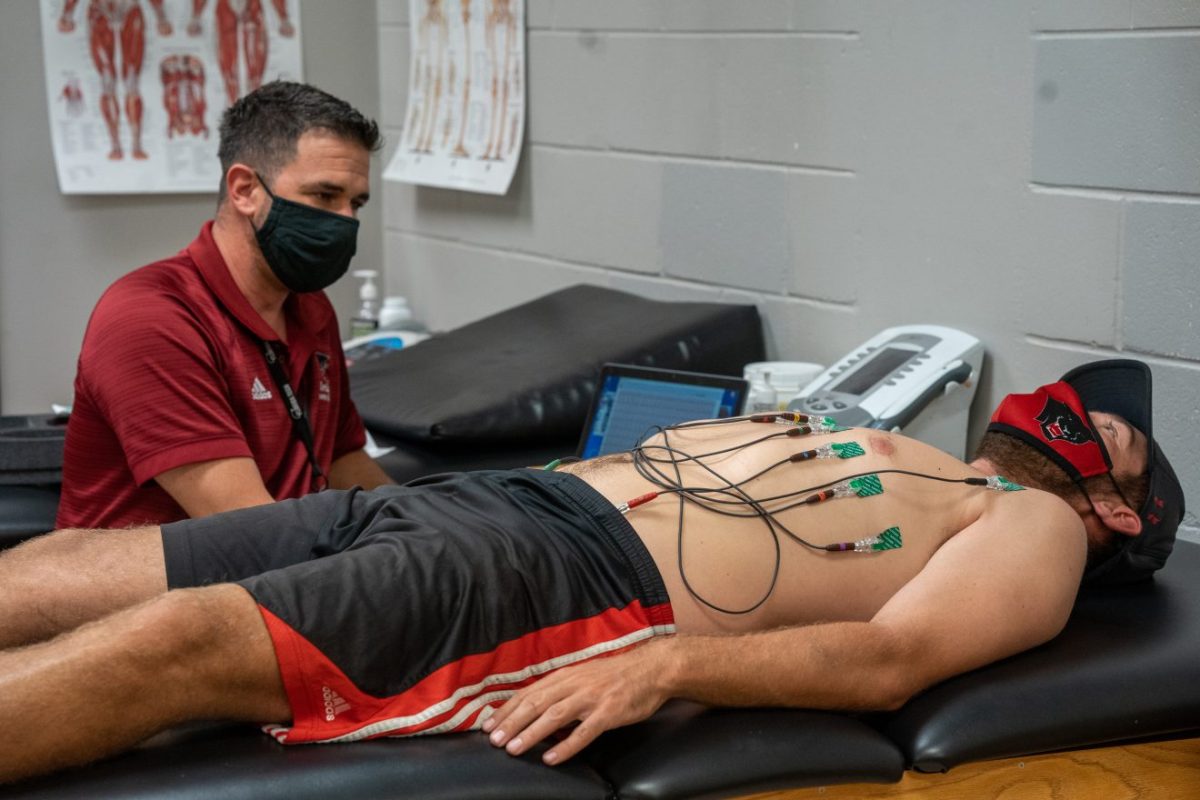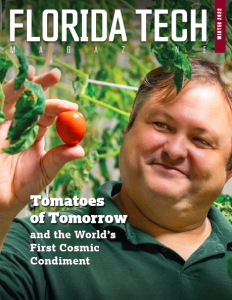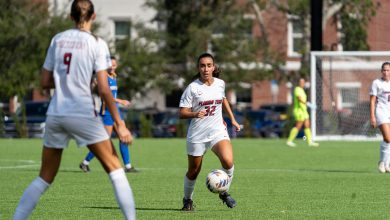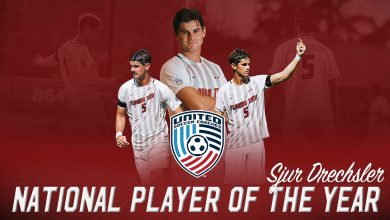Panthers Partner with Nonprofit to Raise Awareness for Cardiac Treatment for Scholar-Athletes
By Jerry Durney and Daniel Supraner
With the health and safety of Florida Tech scholar-athletes in mind, the athletic department has partnered with Who We Play For (WWPF), a local nonprofit that raises awareness for cardiac treatment and preventive care.
“Throughout my career in intercollegiate athletics, I have, unfortunately, seen undiagnosed heart conditions that lead to the catastrophic effects for scholar-athletes at many peer institutions,” says Florida Tech director of athletics Jamie Joss. “When approached with the vision of Evan Ernst from Who We Play For, this aligned with our dedication to providing the safest environment possible for our scholar-athletes. We can help prevent catastrophic events from occurring with a simple heart screening of all our scholar-athletes.”
Many people have been affected by a cardiac event at some point in their lives, be it themselves or someone they know or love. For Ernst, co-founder of WWPF, it all started Nov. 30, 2007.
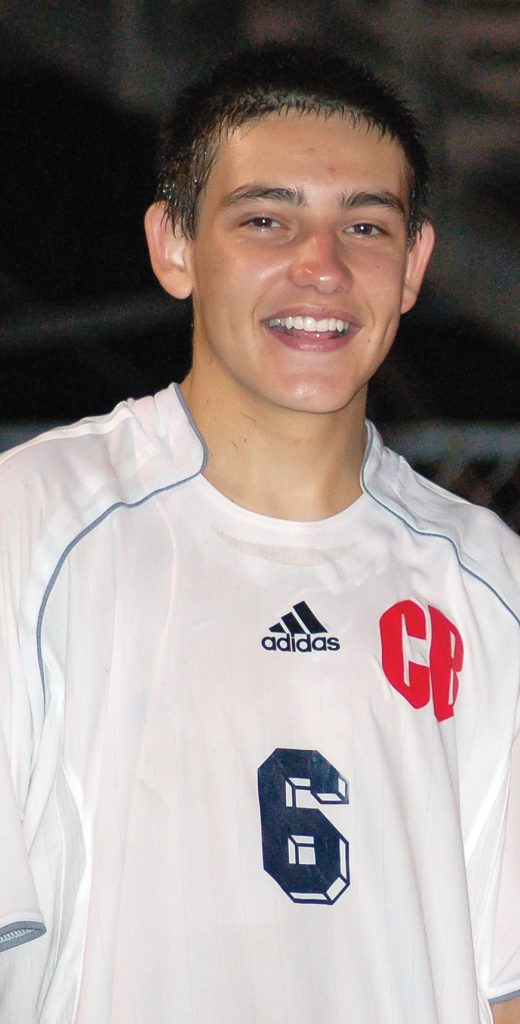
Ernst’s teammate and friend, Cocoa Beach High School soccer player Rafe Maccarone, was warming up for practice when he went into sudden cardiac arrest and passed away a day later.
It was determined post-mortem that Maccarone, who had passed all the necessary physicals to play sports, had suffered from hypertrophic cardiomyopathy (HCM), a condition in which the heart becomes thickened without an obvious cause.
HCM, a recurrent cause of sudden cardiac arrest in young athletes, has caused the deaths of several young athletes, most famously, college basketball star Eric Wilson “Hank” Gathers Jr.
Maccarone’s passing sent shockwaves throughout Brevard County. How could this happen to someone so young and nearing the prime of his life? What, if anything, could have been done to prevent this?
Researchers learned that HCM is not only detectable but also preventable. Countries around the world have implemented heart-screening protocols to identify at-risk children before they take the field. Italy, for example, has seen cases drop by 89% due to these measures.
“When we learned this in college, we came together to create Who We Play For with the vision that we can create a movement to save kids by empowering and helping communities across the country to provide affordable, noninvasive, simple, lifesaving electrocardiogram (ECG) heart screening,” Ernst says.
“So, we created this heart-screening program and partnered up with hundreds of schools across the country over the last 10 years, from the most vulnerable middle schools up to the most elite Division I professional programs,” he says.
WWPF has screened about 200,000 student-athletes and has saved over 200 lives, Ernst says.
“Florida Tech is the first school in the Sunshine State Conference to do our screenings. We’re hoping to grow this so that all colleges across the U.S. get behind doing this, as well.”
WWPF came to Florida Tech’s campus and performed ECGs for all 393 of Florida Tech’s scholar-athletes when they arrived on campus in August 2021 before practices began.
“Since arriving at Florida Tech, it has been a priority of mine to optimize the scholar-athlete experience. As an athletic trainer, it is important to me that we implement preventative measures in our screening process in an effort to identify potential issues that can be addressed upfront,” says Luis Velez, Florida Tech assistant athletic director for sports medicine and performance. “Having Who We Play For and their network of cardiologists on board with us to help screen all of our scholar-athletes not only gives me and my staff peace of mind, but it can also save lives.”
Having Who We Play For and their network of cardiologists on board with us to help screen all of our scholar-athletes not only gives me and my staff peace of mind, but it can also save lives.
Luis Velez, assistant athletic director for sports medicine and performance
Leaving a Legacy
While WWPF was screening Florida Tech scholar-athletes on campus, Ernst learned his path had already indirectly crossed with one student.
“There was a baseball player [freshman Luca Wentzel] there with a pretty obscure Connecticut city on his chest: Wilton. So, I asked him, ‘Do you happen to know George DiRocco?’” Ernst says.
For about a year, WWPF had been working with the family of DiRocco, who died of an undiagnosed heart condition that led to cardiac arrest in September 2020.
“He was a teenager in the prime of his life, never had a sign or symptom until he collapsed and died,” Ernst says.
Wentzel attended the same high school as DiRocco and was friends with his sister.
“I didn’t understand how something like that could happen, especially to someone who’s that young. I thought people who suffered from heart conditions were usually much older,” Wentzel says. “It opened my eyes to the types of struggles people are going through, and that it’s important to have access to equipment like the ones we used for the ECG screening.”
Florida Tech’s partnership with WWPF is already taking root, expanding beyond just the heart screenings. Ernst presented to a senior design class during the first week of school, and his project proposal piqued the interest of men’s soccer player Carlo Campanini.
Campanini and his siblings had played in local charity soccer games hosted by WWPF for years. Now, he and his senior design group are helping to increase awareness for the organization by creating a registration system to simplify the process for families everywhere to access heart screenings.
“We’re going to include Carlo and his peers on our presentations to the American Academy of Pediatrics, UCF College of Medicine, Advent Health, Nemours and Arnold Palmer,” Ernst says.
The university’s hope is that the Florida Tech-WWPF partnership will ease the grief caused by cardiac events like Maccarone’s, allow his memory to live on and prevent tragedies like his from happening in the future.
This piece was featured in the winter 2022 edition of Florida Tech Magazine.

